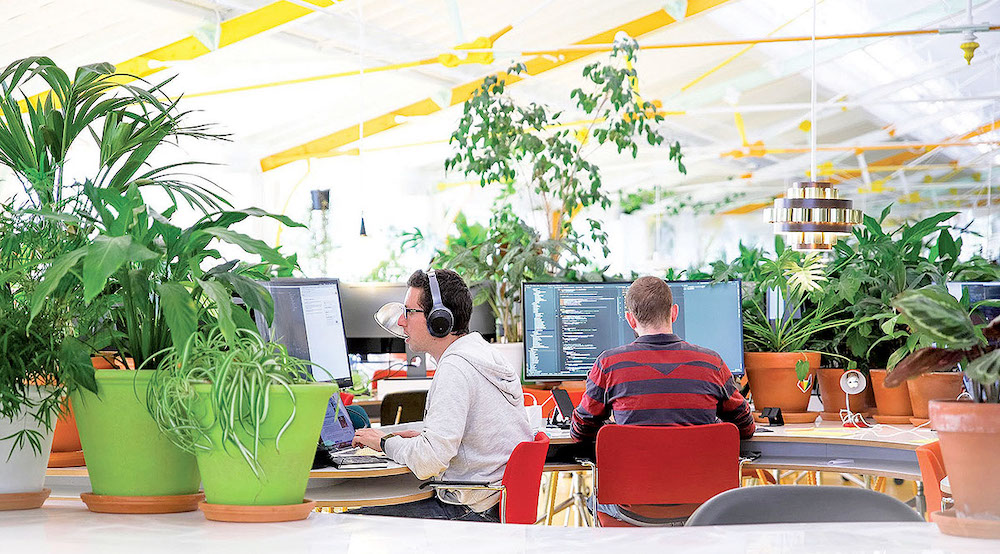(Editor’s note: Dispatches Europe tracks the tech scene – startups, scale-ups and mature companies – because so many of our highly skilled internationals are engineers, physicists and developers. This post about startups in Lisbon is part of our Tech Tuesday series.)
Lisbon’s startup ecosystem, though relatively young, is growing rapidly. The tech industry, both consumer-facing and business-facing, is finding in Lisbon the perfect environment to grow and mature. There must be a reason why Dispatches chose Lisbon as one of the best places for startups in Europe.
The big news is, Lisbon’s Unicorn Factory will open in November. Lisbon Mayor Carlos Moedas announced the project, which is meant to nurture startups from team-building in the earliest stage to billion-euro exits.
A Unicorn is a startup with a valuation of at least 1 billion euros/dollars. Entrepreneur José Neves founded Portugal’s first Unicorn, luxury fashion aggregator FarFetch, in Porto. Now headquartered in London, FarFetch is valued at about $3.2 billion. The most recent is OutSystems. (See below.)
How it all began
Lisbon’s tech scene really started when Web Summit made Lisbon its new location in 2016, leaving Dublin … to everyone’s surprise. This drew attention to Lisbon as a city with great potential. The perfect climate and the relatively cheap living costs made many investors and entrepreneurs realize there is so much potential for new as well as existing tech companies. The culture is also quite welcoming of foreigners, and the majority of locals (especially the young ones) speak colloquial English.
Another advantage Lisbon has is the airport’s close proximity to the city. This may seem like a small advantage, but it actually has great appeal. Startups whose work rely on frequent traveling or who often receive guests for business from outside the country are more likely to prefer a city in which the distance between the airport and the city center is only 15 minutes by car or metro.
This saves so much time, money and effort. I know a French entrepreneur whose work requires a lot of traveling and who re-located from Paris to Lisbon just for that reason. He mentioned to me how this allowed him more down time.
The Tech Scene
Many big businesses have already moved or partly moved to Portugal, including those in the FinTech sector. Some of the leading FinTech companies in Portugal provide online payment options as well as new forms of payment (which, to be honest, remains a gap in the Portuguese market as online payment options are not as efficient as one may expect).
• Revolut, which opened up a customer operation in Portugal in December 2021, is one of many examples. The London-based digital banking services company has more than 500,000 customers in Portugal alone. The growth of FinTech in Portugal has not only made life easier for business owners and investors but also for consumers carrying everyday transactions. Moreover, other mega companies such as Google and Mercedes Benz have opened up offices in Lisbon over the last few years. This is all good news for people looking to launch their own startups in Lisbon as there is a vibrant tech
buzz and opportunities for collaboration with major corporations.
• Portugal has many successful startup stories such as OutSystems, which was founded in Lisbon in 2011 and “is the world’s first market-leading, low-code software development system with a valuation of $9.5 billion,” as WebSummit notes.
• Unbabel uses AI to improve language translation needed for customer service. It was founded 2013 and has its headquarters both in San Francisco and in Lisbon. Unbabel just raised 1.3 million euros to expand in Europe.
• There is also Sensei, founded in 2017 in Lisbon, who helps retailers build intelligent stores. The company recently raised $6.5 million from two venture capital firms.
Support for startups
The Portuguese government provides support for foreign investors and has been quite encouraging of entrepreneurs from all over the world. In 2018, the Portuguese government launched a fund of 200 million euros in early stage co-investment funds with venture capital funds. In addition, the government facilitates taxation procedures for foreign investors. For example, there is the non-habitual tax residency scheme which allows people who work for key industries, such as the tech industry, to be taxed a flat rate of 20 percent. Moreover, those companies become exempt from taxes on income from outside Portugal.
There is also Startup Lisboa, an incubator founded in 2011 by Bank Montepio, IAPMEI (Portuguese Agency for Competitiveness and Innovation) and the municipality of Lisbon. Startup Lisboa provides support for businesses looking to start in Lisbon.
Early-stage investments also are growing. To mention just a couple of examples, Portugal Ventures has invested 162 million euros since 2012. There is also Faber Ventures, which supports early-stage startups and aims not only to provide capital but also to give founders entrepreneurial and operational experience.
Steadily and rapidly, Lisbon is becoming the perfect ecosystem for the tech industry. It is a place which
embraces diversity, welcomes expats and – most importantly – is dedicated to grow not only as a tech hub within Europe but also as a destination for global talent.
You can read more about Lisbon’s startup scene here on the Web Summit website.

About the author:
Sarah Nagaty is a PhD researcher of cultural studies in Lisbon. She’s lived in Portugal for three years.
As a student of cultural studies, Sarah is drawn to what connects people from different backgrounds to new cultures and places, how they relate to their new surroundings and what kinds of activities they could engage with in their new hometowns.
See all of Sarah’s Dispatches posts here.
See Dispatches’ Lisbon story archive here.
Sarah Nagaty has a PhD in cultural studies, She’s lived in Portugal for six years.
As a student of cultural studies, Sarah is drawn to what connects people from different backgrounds to new cultures and places, how they relate to their new surroundings and what kind of activities they could engage with in their new hometowns.















